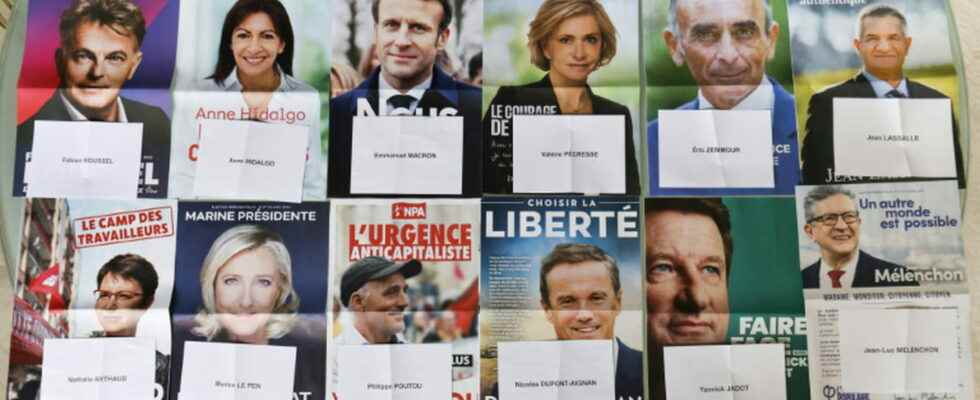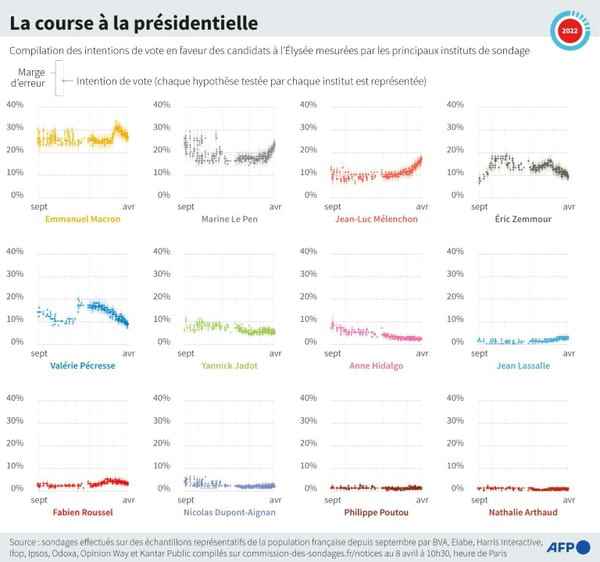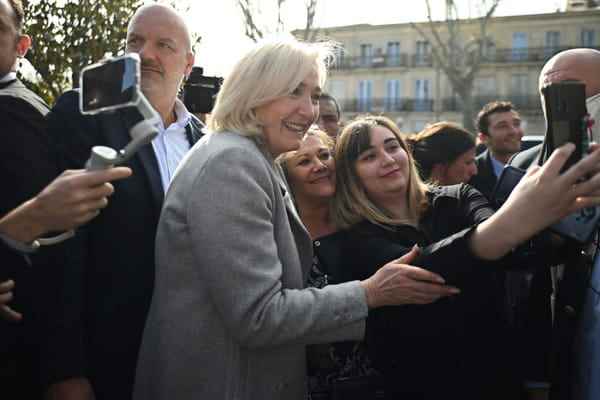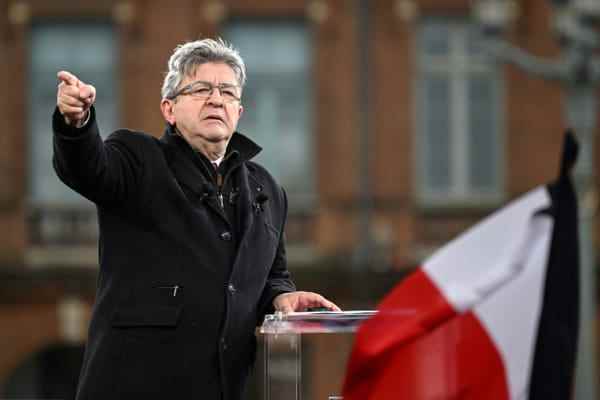Since midnight, the 12 presidential candidates have been held to the utmost discretion until the result of the ballot on Sunday, which promises to be tight between Emmanuel Macron and Marine Le Pen, given favorites as in 2017, with Jean-Luc Mélenchon at the lookout.
Huge unknown of this 11th presidential election by universal suffrage of the Fifth Republic: the abstention rate.
Many political scientists fear that the record of April 21, 2002 (28.4%), the highest level ever recorded for a first round of a presidential election, could be beaten, which is much more than in 2017 (22.2% ) which was already not a good vintage.
The new element is the high rate of undecided voters, which poses “significant” uncertainty on the ballot, according to political scientist Pascal Perrineau.
The National Commission for the Control of the Electoral Campaign and the Polling Commission also called on voters on Friday “to exercise the greatest caution” after the broadcast of text messages citing polls which are not polls and “which may constitute information misleading”.
Pending the first results Sunday at 8:00 p.m., public meetings, distribution of leaflets and digital propaganda of the candidates are therefore prohibited since Friday evening at midnight in mainland France.
Polling stations will open at 8 a.m. Sunday and no interviews, polls or estimates may be released before the results.
The candidate Yannick Jadot is however announced at the march organized on Saturday in Paris for the climate and social justice.
To take into account the time difference, some overseas voters will vote as early as Saturday. St-Pierre-et-Miquelon will open the ball at 8 a.m. (noon in Paris), followed by Guyana, Martinique, Guadeloupe, Saint Martin and Saint Barthélemy.
Then comes the Pacific, with Polynesia which will start voting at 8 a.m. (8 p.m. in Paris), Wallis and Futuna and New Caledonia.
In the Indian Ocean, where the time difference is less with mainland France, Reunion will vote on Sunday at 6 a.m. Paris time and Mayotte at 7 a.m., before the opening in mainland France.
– Breakup –
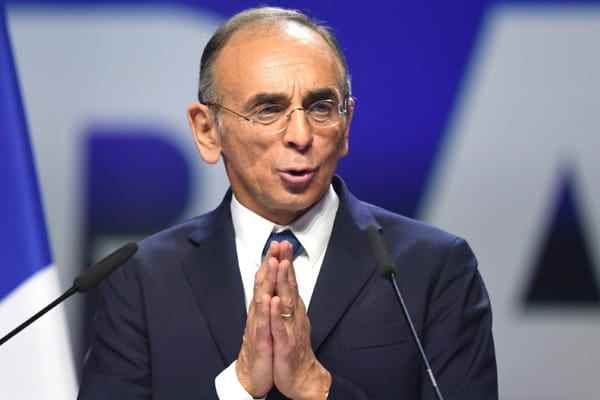
The candidate Reconquest! Presidential Eric Zemmour in a meeting at the Palais des Sports, April 7, 2022 in Paris
© AFP – BERTRAND GUAY
“We experienced a strange campaign which took place in rupture with all the imagination of the presidential elections”, explains to AFP Frédéric Dabi, director of Ifop.
An “unprecedented” campaign for several reasons: the war in Ukraine which “anaesthetized” it, a “low interest” which contrasts with the previous elections, and the absence of “the usual confrontation of projects” between the 12 candidates in contention.
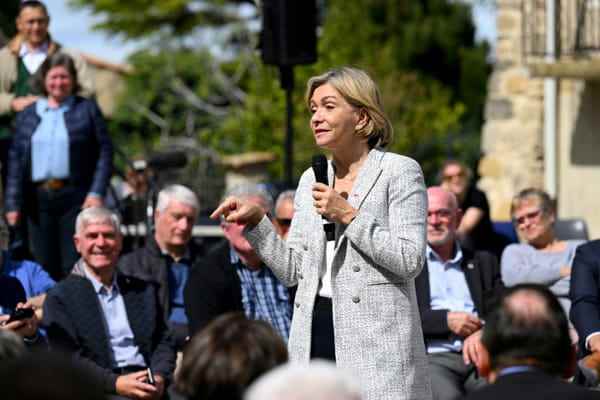
The LR presidential candidate Valérie Pécresse (c), April 8, 2022 in Cairanne, in the south of France
© AFP – Nicolas TUCAT
“We have a kind of archipelization of the debates with small duels”, in particular between the far-right polemicist Eric Zemmour and the LR candidate Valérie Pécresse or between the rebellious Jean-Luc Mélenchon and the other candidates from a fragmented left. , the ecologist Yannick Jadot, the communist Fabien Roussel, the socialist Anne Hidalgo or the Trotskyists Philippe Poutou and Nathalie Arthaud.
The sovereignist Nicolas Dupont-Aignan and the Béarnais deputy Jean Lassalle regretted a campaign without debate.
– Republican Front “eroded” –
To ward off indecision and abstention, the candidates multiplied the last week of the campaign: last major meetings, media exposure, final field trips.
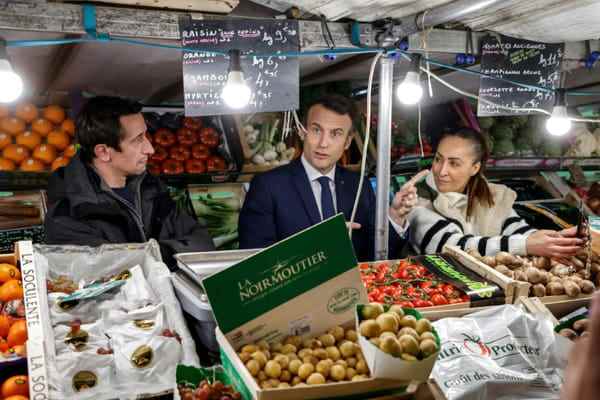
President-candidate Emmanuel Macron (c) at a market in Neuilly-sur-Seine, April 8, 2022 near Paris
© AFP – Ludovic MARIN
The outgoing president, who has always remained at the top of the polls, entered the campaign late, prevented first by the health crisis, then by the invasion of Ukraine by Russia.
He focused on a single major national meeting, last Sunday, but gave a boost at the end of the week, with several interviews, even making a short impromptu visit to a market in Neuilly-sur-Seine on Friday.
Marine Le Pen, who made her last trip to Aude on Friday, started an upward momentum after being worried by her far-right rival Eric Zemmour, consolidating in second place and then gradually closing the gap with Emmanuel Macron .
Jean-Luc Mélenchon gradually rose to third place.
But political scientists do not exclude that a surprise could shake up this trifecta given by the polls.
Even before the end of the first round, several candidates projected themselves into the perspective of a Macron-Le Pen duel in the second round, revealing cracks in the “republican front” against the far right.
“The Republican front hasn’t been what it used to be for a while now. It has been eroded from above and below,” the director of the Jean-Jaurès Foundation, Gilles Finchelstein, told AFP. “It remains a spring”, but to think that this spring, “will be enough, is an illusion”.
All rights of reproduction and representation reserved. © (2022) Agence France-Presse
